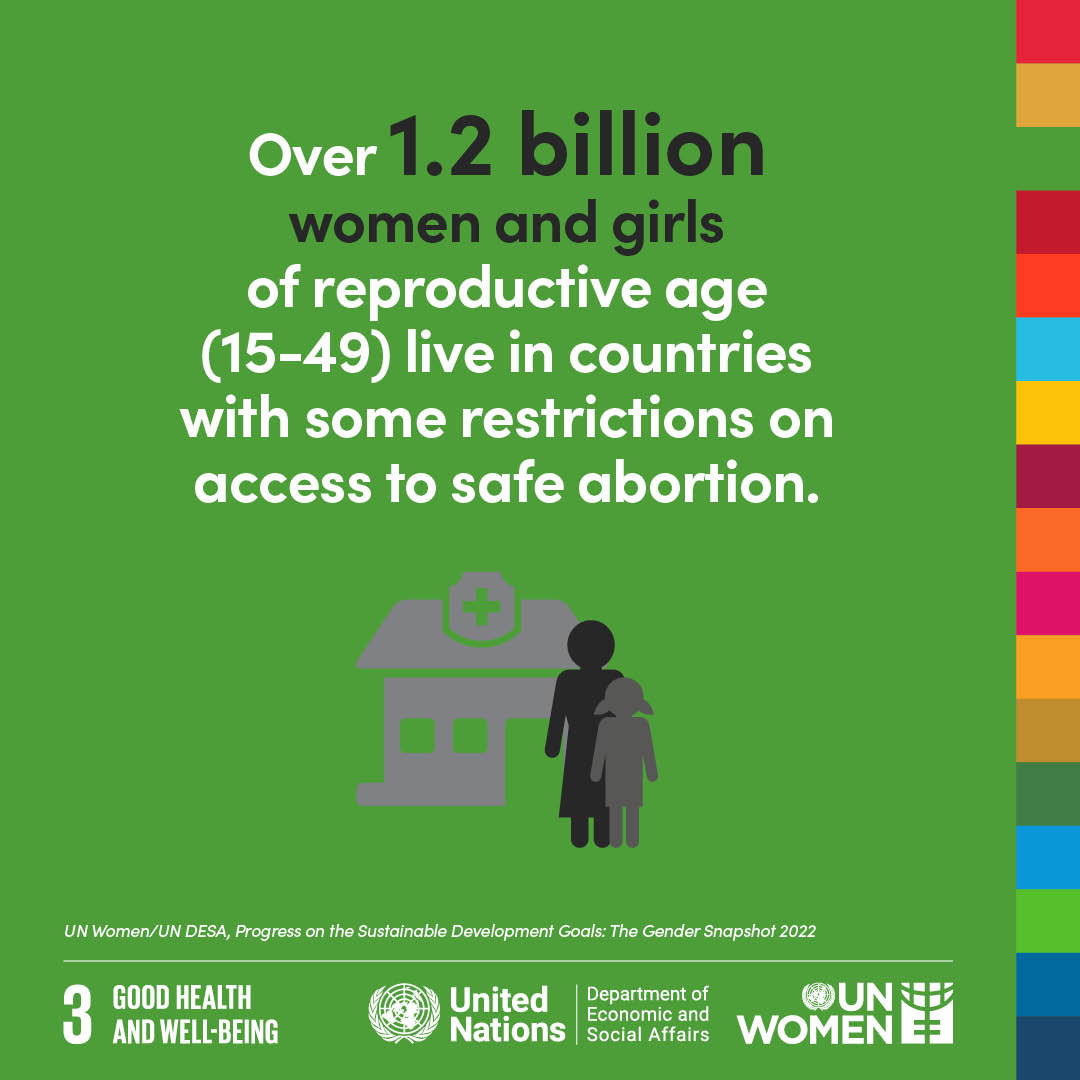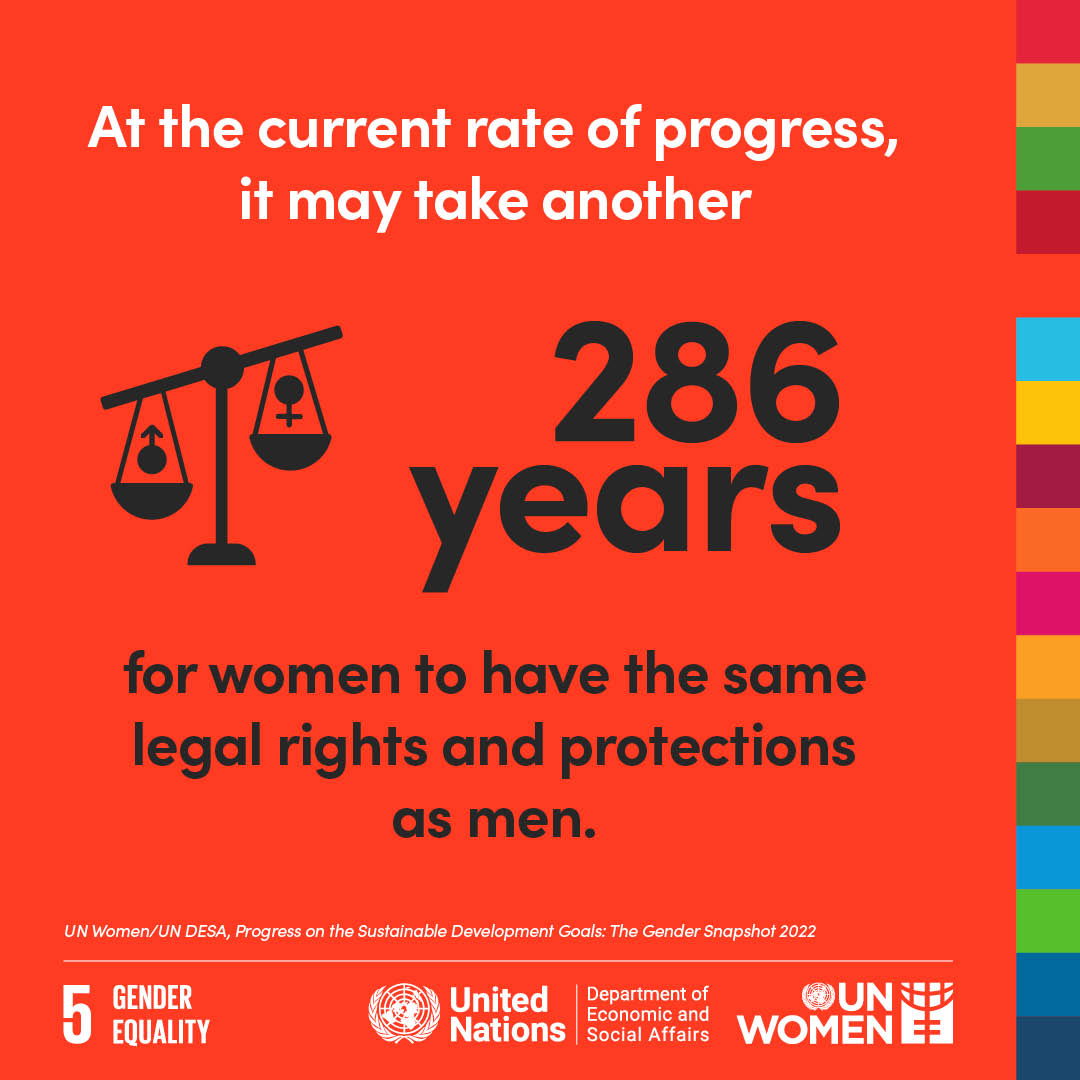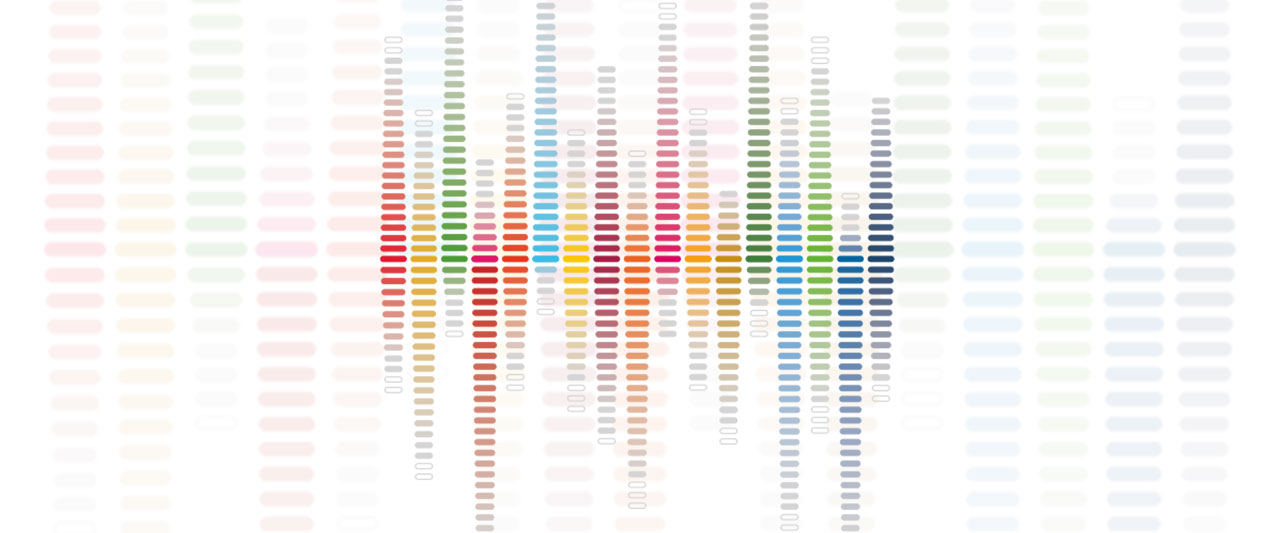A comprehensive report—Gender snapshot 2022—produced by UN Women and UN Statistics Division, presents the latest evidence on the progress of gender equality across the world, and the results are sobering.
The data not only shows a sluggish pace of progress, but also shows alarming regressions on many issues. The report also illustrates how conflict, climate disasters and COVID-19 have converged to increase sexual violence, maternal deaths, adolescent birth rates, food insecurity, poverty and mental health issues for women and girls across the world.
Access to reproductive health and rights is closely linked to the ability of women and girls to exercise their full human rights, which makes the following results from this report all the more concerning:

1.2 billion women and girls of reproductive age live in countries with restrictions on access to safe abortion, and 102 million live in places where abortion is totally banned

At the current rate of progress, it may take 286 years to remove discriminatory laws and close gaps in legal protections for women and girls, such as safeguarding their sexual and reproductive rights.
“
This data clearly shows the limited political will and financial commitments to accelerate progress. This is why Ipas’s holistic approach is so important. We focus on long-term changes by shifting harmful gender roles and stereotypes that perpetuate gender discrimination and abortion stigma—and that reinforce unequal roles, decisionmaking, rights, and opportunities.”
—Cecilia Espinoza, Ipas Associate Director, Access


